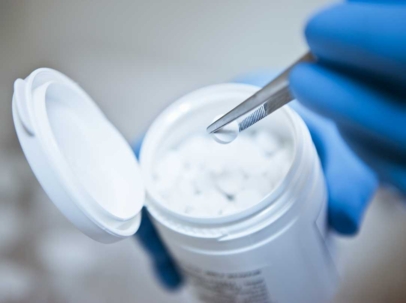Gelatin soft capsule formulation
Published February 26, 2026
Low hygroscopic and not migrating gelatin plasticizer: POLYSORB® 85/70/00 sorbitol-sorbitan

Objective
Glycerin has been historically used to plasticize soft gelatin capsules (softgels). However, glycerin presents major drawbacks: a high hygroscopicity and a capacity to migrate out of the gelatin network toward the liquid fill. POLYSORB® 85/70/00 sorbitol-sorbitan solution is a good complementary to glycerin to plasticize gelatin with lower hygroscopicity and significant reduction of migration phenomenon.
Formula
| Ingredient | Functionality of the ingredient | Formulation in the melter | % by weight in dried capsule shell (8% water) |
| Gelatin 180-bloom limed bone | Film-forming agent | 44% | 61.4% of the capsule shell |
| POLYSORB® 85/70/00 sorbitol-sorbitan | Plasticizer | 11% (dry substance) | 15.3% of the capsule shell |
| Glycerin | Plasticizer | 11% | 15.3% of the capsule shell |
| Water | q.s. (34%) | 8% of the capsule shell | |
| PEG 400 based drug preparation | Capsule filler | 100% of the filling |
Method
- Blend the gelatin, plasticizers* and water in the melter.
- Heat until the gelatin melts (end point 60°C).
- Vacuum for full de-aeration.
- Maturate for minimum 6 hours** at 60°C.
- Process the melt through your softgel equipment, dry to mass constancy (typically tumble dryer followed by tray drier at 20% ERH /25°C).
* The optimal plasticizers ratio should be adapted on the gelatin grade, the capsule size and the fill system. Pigments could be added, if needed.
** The water content might be adjusted to meet internal viscosity limits.
Comment on Roquette product benefits
POLYSORB® 85/70/00 partially dehydrated sorbitol-sorbitan solution has remarkable compatibility with gelatin ensuring no migration over time, thereby preventing any defects like the graining observed when crystallizing plasticizers are used or leaching phenomena either into the filler media or at the surface of the softgel.
In addition, POLYSORB® 85/70/00 is less hygroscopic than glycerin. This property offers key advantages that include shorter drying time after production that reduces production costs and higher storage stability.
For more information, please refer to the following article published in Tablets & Capsules (April 2019, volume 13, number 3, page 37) accessible here: https://tabletscapsules.com/wp-content/uploads/pdf/tc_20190401_0037.pdf
Disclaimer
This formula is a guideline for recommended use of our products; it does not imply consent to their use in violation of existing patent(s).
These details are for information only, and we believe them to be reliable.